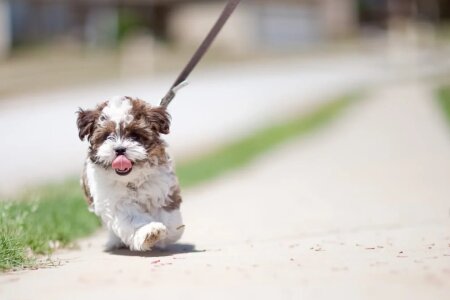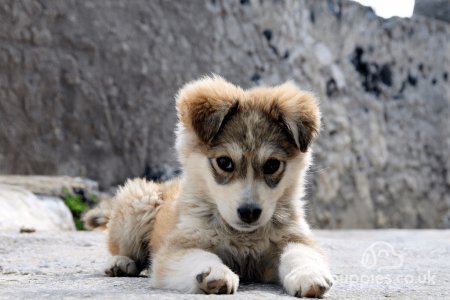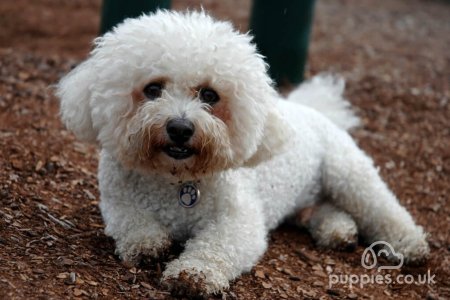How Many Teeth Do Dogs Have? - Dog Dental Guide
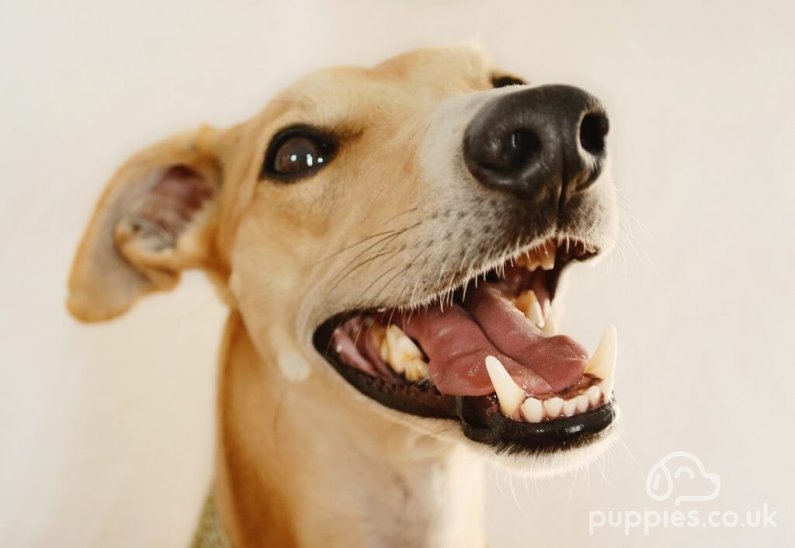
Canine dental health is just as important as our own. Dogs have puppy teeth that eventually fall out to make room for their adult teeth. As dogs cannot care for their own dental health, it is the owner’s responsibility to make sure their teeth are kept in good condition with regular brushing and visits to the vet for dental cleaning.
The Number Of Teeth In A Dog’s Mouth
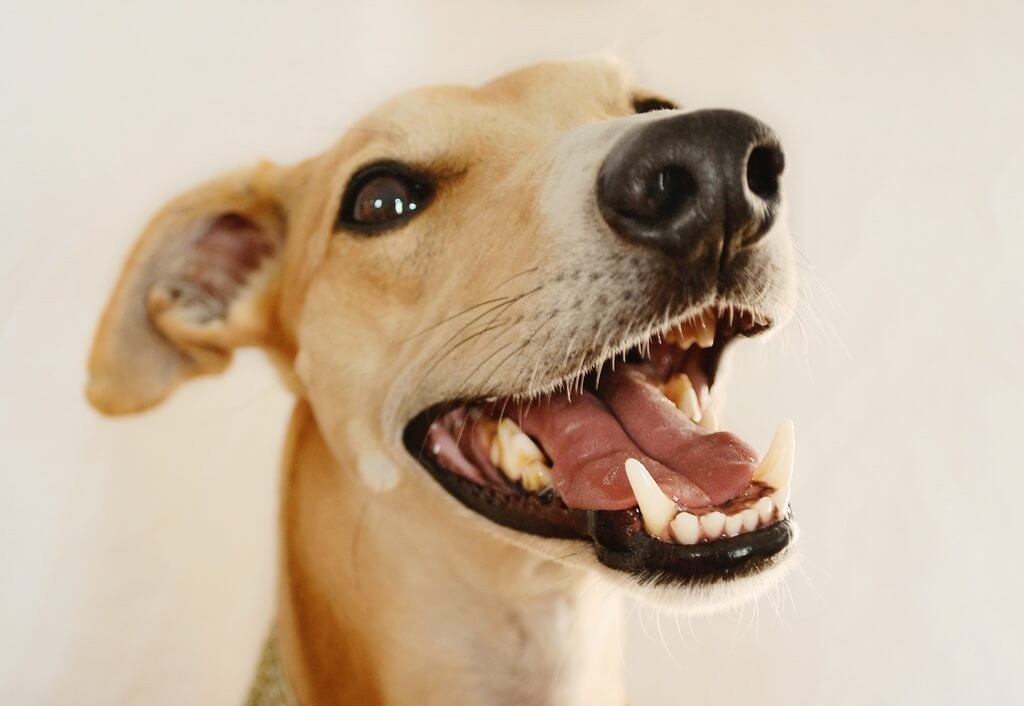
Attribution 2.0 Generic (CC BY 2.0) - Brambleberries Photography
The number of teeth dogs have depends on their age; puppies have 28 teeth and adults have 42 teeth.
Adult Dog Teeth
Adult dogs have 42 teeth. The molars will come in by the time the dog is 5-7 months old meaning adult dogs have 12 incisors, 4 canines, 16 premolars and 10 molars.
It does not matter what size or breed the dog is, it will have 42 teeth.
Puppy Teeth
At around 3 weeks old a puppy’s deciduous teeth (also known as milk teeth) start coming in. Between 3-12 weeks a puppy develops 28 teeth in total: 12 incisors, 4 canines, and 12 premolars.
Puppies will start losing their baby teeth at 3-4 months (incisors) and 4-6 months (canines and premolars).
During this time your puppy will probably spend a lot of its time chewing toys so it’s a good idea to invest in high-quality toys that can withstand puppy chewing.
Types Of Canine Teeth
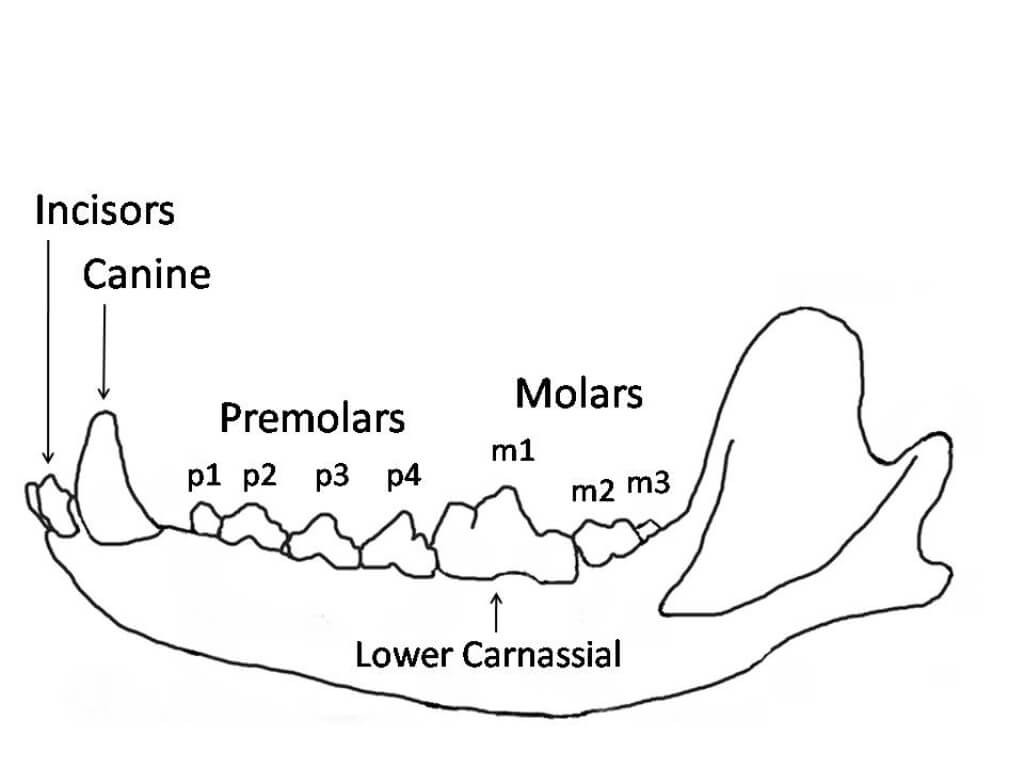
Attribution-ShareAlike 4.0 International(CC BY-SA 4.0) - William Harris
Dogs have incisors, canines, premolars, and molars just like we do. However, adult dogs have 10 more teeth than adult humans do.
Incisors
At the front of your dog’s mouth are its incisor teeth. These small teeth are found at the front of the mouth on the upper and lower part of the jaw. The incisor teeth are used for grooming and for scraping at bits of meat.
Canines
The canines are the pair of large pointy teeth behind the incisors. The four canine teeth are super sharp and allow dogs to tear meat and hold objects. When a dog feels threatened or is being defensive it will show its canine teeth.
Premolars
Next are the wide premolars. These are found on both sides of the jaw and are used for chewing and shredding food. The premolars are relatively sharp for efficient chewing.
Molars
Right at the back of the mouth are the molars. These are flat and are used to crunch on hard items such as kibble.
Reasons Dogs Lose Their Teeth
Dogs lose their teeth when transitioning from puppy teeth to adult teeth. This is normal and is the only time in a dog’s life they will lose teeth. However, there are medical reasons dogs can lose their adult teeth including:
Periodontal Disease
Advanced dental disease is the most common cause of tooth loss in dogs. Periodontal disease can lead to tooth decay and gum disease. Losing a tooth in this way is painful and uncomfortable so proper dental care is required to prevent dogs from developing this disease.
Tooth Decay
Dogs experience tooth decay at a faster rate than humans do. They use their teeth for lots of things so wear and tear are common.
Some dog breeds including greyhounds and small breeds are known to experience tooth decay at a particularly fast rate. This often results in the dog needing several teeth extracted by vets throughout its lifetime.
Trauma
Dogs can also lose teeth through trauma and mouth injury. Bones and other dense materials can cause teeth to fracture or fall out. Pork bones and beef bones are known for being too hard for dogs’ teeth so avoid giving these to your dog.
Keeping Your Dog’s Teeth Healthy
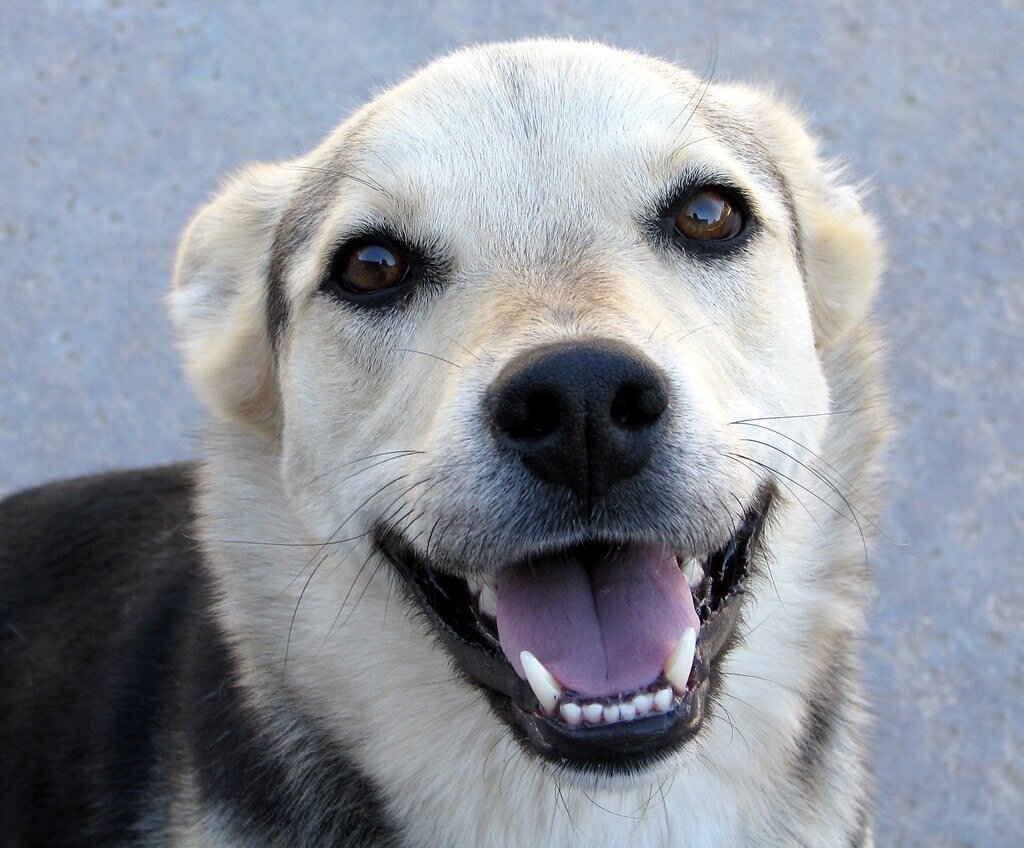
Attribution 2.0 Generic (CC BY 2.0) - Rennett Stowe
Maintaining your dog’s dental health is an important part of caring for their overall health and well-being.
It’s best to check their teeth regularly and brush them with dog-friendly toothpaste to help prevent dental problems. Dental chews can also help keep your dog's teeth clean.
Your dog will need occasional dental cleans at the vet, you can also use your dog’s regular vet checks as an opportunity to discuss their dental health and get their teeth examined.
Always consult with a vet if you notice your dog is losing teeth, has wiggly or loose teeth, or has worsening bad breath. If your dog loses one tooth then a vet check-up is necessary if the cause was tooth decay or periodontal disease it is likely other teeth are diseased too.
Keep An Eye Out For Retained Teeth In Puppies
Sometimes not all of the puppy teeth fall out and the ones remaining in the mouth are called retained teeth. Retained teeth can cause overcrowding in the mouth resulting in abnormal positioning of adult teeth and a higher likelihood of dental issues.
Retained teeth are more likely to be seen in small dog breeds and vets can remove the retained teeth to make room for the adult teeth.
Looking For A New Puppy?
If you’re looking for a new dog, use Puppies to find a healthy puppy that suits your family and lifestyle. All listings are checked to help ensure your new family member comes from a responsible breeder.






